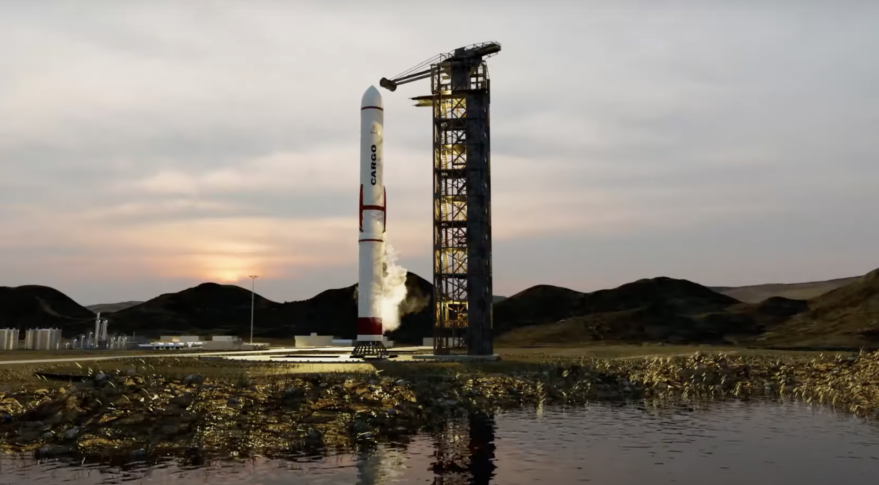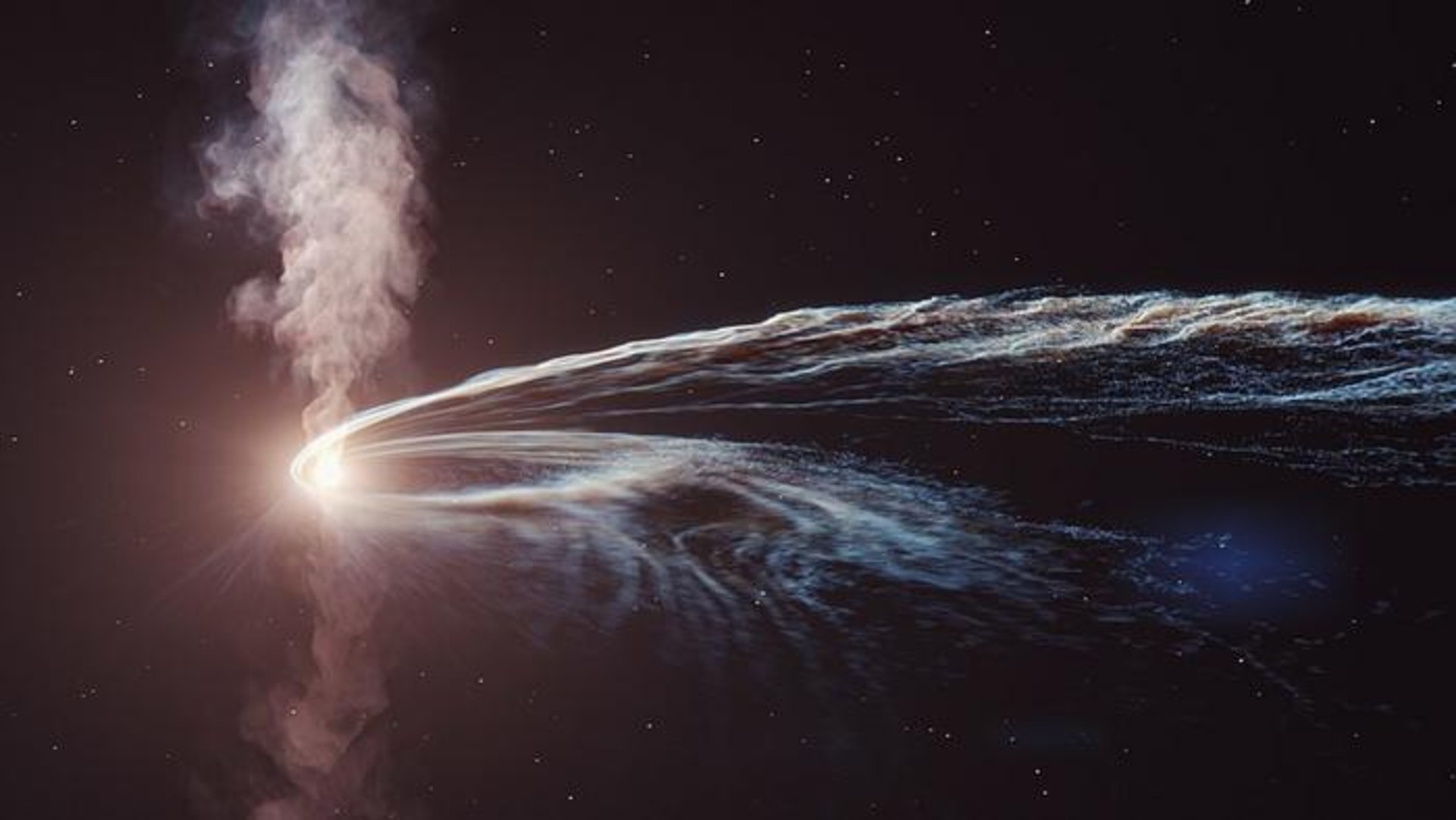SpaceX snags $102 million contract to rocket military supplies and humanitarian aid around the world: report
It's the largest contract of its kind ever awarded for rocket cargo, SpaceNews reported.
Breaking space news, the latest updates on rocket launches, skywatching events and more!
You are now subscribed
Your newsletter sign-up was successful
Want to add more newsletters?

Delivered daily
Daily Newsletter
Breaking space news, the latest updates on rocket launches, skywatching events and more!

Once a month
Watch This Space
Sign up to our monthly entertainment newsletter to keep up with all our coverage of the latest sci-fi and space movies, tv shows, games and books.

Once a week
Night Sky This Week
Discover this week's must-see night sky events, moon phases, and stunning astrophotos. Sign up for our skywatching newsletter and explore the universe with us!

Twice a month
Strange New Words
Space.com's Sci-Fi Reader's Club. Read a sci-fi short story every month and join a virtual community of fellow science fiction fans!
SpaceX has won a contract, worth over $102 million, to transport military supplies and humanitarian aid around the world using a rocket.
The U.S. Air Force awarded SpaceX the contract on Jan. 14. It's a five-year agreement that's part of the Air Force Research Laboratory's (AFRL) new rocket cargo program, according to a SpaceNews report about the contract, which was first reported by AviationWeek.com. The new project is exploring the use of large rockets for Department of Defense (DoD) global logistics, SpaceNews reported.
The contract states that SpaceX will "demonstrate technologies and capabilities to transport military cargo and humanitarian aid around the world on a heavy rocket," according to SpaceNews.
This is being described as "point-to-point transport," taking a payload from one place to another on Earth and, according to SpaceNews, is the largest rocket cargo contract of its kind ever awarded.
Related: The evolution of SpaceX's rockets in pictures
This relationship stems from the fact that the DoD is "very interested in the ability to deliver the cargo anywhere on Earth to support humanitarian aid and disaster relief," Greg Spanjers, the AFRL rocket cargo program manager, told SpaceNews. "Commercial vendors envision fixed point-to-point transport to established sites, a commercial service that we are certainly interested in procuring once available."
Spanjers added that, while SpaceX has secured this initial contract, the Air Force plans to work with other companies as well as part of this program. Last year, Air Force officials unveiled Rocket Cargo Vanguard, a project that studied plans to deliver up to 100 tons of cargo anywhere on Earth using commercial rockets.
Breaking space news, the latest updates on rocket launches, skywatching events and more!
The new contract doesn't specify which of SpaceX's launch vehicles will be used for this transport. But under the agreement, the AFRL will be able to view and access data for all of SpaceX's orbital launches and booster landings so the right vehicles for the job can be chosen and assessed.
SpaceX has been flying reusable Falcon 9 rockets for years and also has a heavy-lift Falcon Heavy rocket with reusable boosters for larger missions. The company is also developing a massive rocket, called Starship, that will use a reusable Super Heavy booster to launch up to 100 metric tons to Earth orbit. That rocket, SpaceX CEO Elon Musk has said, could be capable of point-to-point travel around Earth.
Under the new contract, the AFRL will also be able to call upon SpaceX to demonstrate its heavy cargo transport and landing capabilities, though there is not yet a specified a timeline for when such a demonstration might happen, SpaceNews noted.
"AFRL will be leveraging several commercial demonstration launches over the next few years to collect the data," Spanjers told SpaceNews, adding that the Air Force "does not drive this schedule but rather will collect data whenever SpaceX flies relevant missions."
As part of the contract, SpaceX will also design cargo bays for the Air Force, specifically cargo bays that can be quickly loaded and unloaded and that can fit with U.S. Transportation Command intermodal containers, according to SpaceNews.
Related: A SpaceX Falcon 9 rocket stage will slam into the moon on March 4
Aside from transporting cargo and supplies for the U.S. military, the contract also extends to disaster relief and humanitarian aid deliveries. However, there aren't spaceports everywhere that disaster strikes, so landing a rocket filled with necessary supplies is a challenge that will have to be overcome.
To deal with this obstacle, Spanjers told SpaceNews that the AFRL is "exploring a wider range of novel trajectories to mitigate overflight issues, exploring a broad range of landing options for austere sites, researching human factors when landing near populations and integrating a broader range of cargo including medical supplies."
Email Chelsea Gohd at cgohd@space.com or follow her on Twitter @chelsea_gohd. Follow us on Twitter @Spacedotcom and on Facebook.

Chelsea “Foxanne” Gohd joined Space.com in 2018 and is now a Senior Writer, writing about everything from climate change to planetary science and human spaceflight in both articles and on-camera in videos. With a degree in Public Health and biological sciences, Chelsea has written and worked for institutions including the American Museum of Natural History, Scientific American, Discover Magazine Blog, Astronomy Magazine and Live Science. When not writing, editing or filming something space-y, Chelsea "Foxanne" Gohd is writing music and performing as Foxanne, even launching a song to space in 2021 with Inspiration4. You can follow her on Twitter @chelsea_gohd and @foxannemusic.

